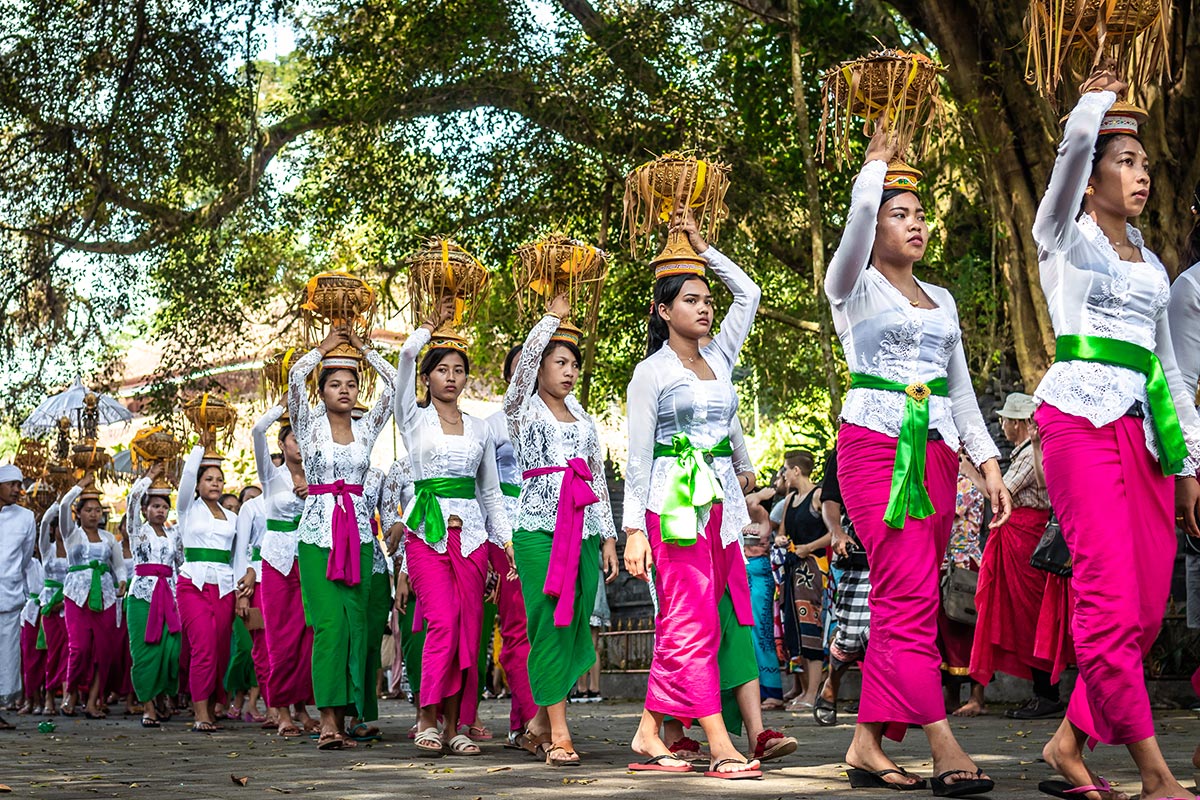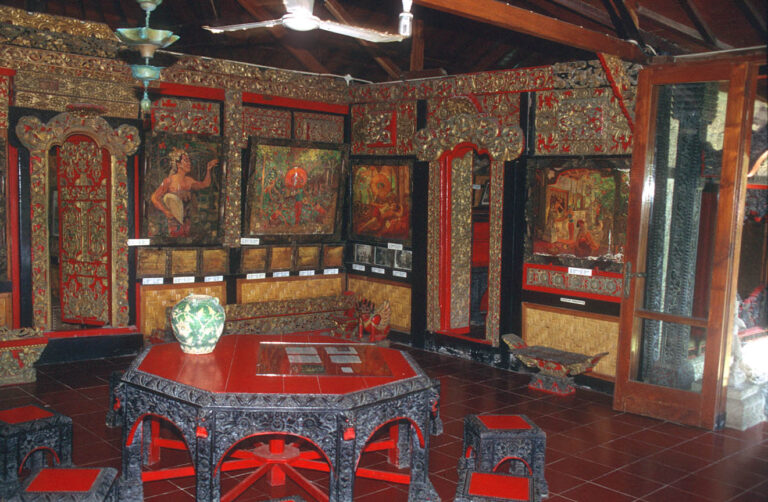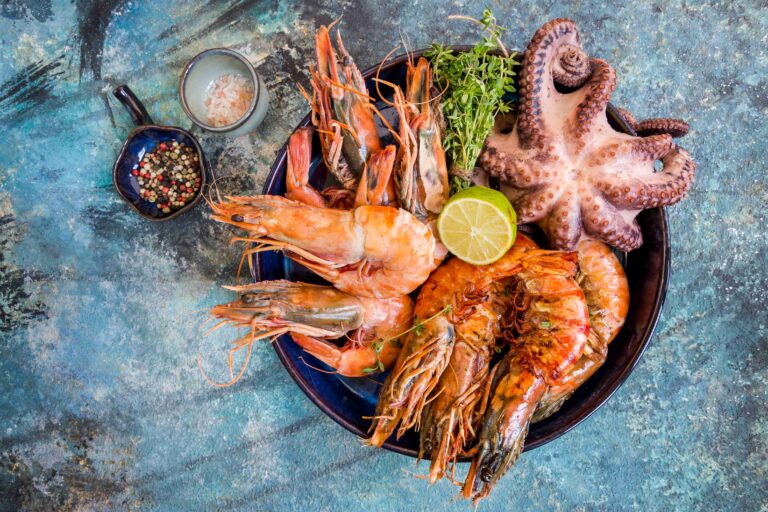Bali has exceptional beauty and rich culture, with its stunning beaches, mountains, and volcanoes. Bali’s enchanting festivals and celebrations are among the distinctive features that set it apart. These events showcase the region’s customs and traditions and are celebrated enthusiastically throughout the year. Whether it’s the music performances at Kuningan or the intricate parades of Galungan, each Bali spirit festival is filled with joyous celebration. From Nyepi’s day of silence to Odalan’s colourful dance performances, there’s always something special to discover when exploring Bali’s festivities.
If you are in Bali during these festivals, you can experience the beauty and traditions of Bali’s culture firsthand. It’s important to know that there could be road closures due to ceremonies, and for the major festivals, businesses will be closed as well. Tourists are asked to be respectful and exercise patience and appreciation because these ceremonies and celebrations are sacred to the Balinese and are part of what makes the balinese culture so beautiful and welcoming to visitors.
Let’s delve into the captivating world of Balinese festivals and explore what makes them so remarkable.
Bali’s Festivals and Celebrations

1. Galungan And Kuningan
Galungan and Kuningan are two of Bali’s most revered holidays, and they occur every 210 days on the Balinese calendar. They bring the island to life with their vibrant colours, energetic music, and elaborate decorations, most noticeably the penjor – bamboo poles with offerings suspended at the end – along the streets. The holiday begins with Galungan, marking the triumph of good over evil. After 10 days, there is Kuningan, to give thanks for nature’s abundance and seek blessings from God and ancestors.
2. Melasti

Melasti is a traditional Hindu festival in Bali three days before Nyepi, the Balinese New Year. Dressed in traditional white wear, the Balinese Hindus gather on beaches to purify their souls by bathing in seawater, chanting holy mantras and praying to Shiva for spiritual enlightenment and prosperity in the year ahead. The festival also promotes community and family unity through performing traditional dances, sharing local dishes and making offerings at ceremonial shrines. Melasti is an opportunity for locals to reconnect with their cultural roots, renew their faith and welcome new beginnings.
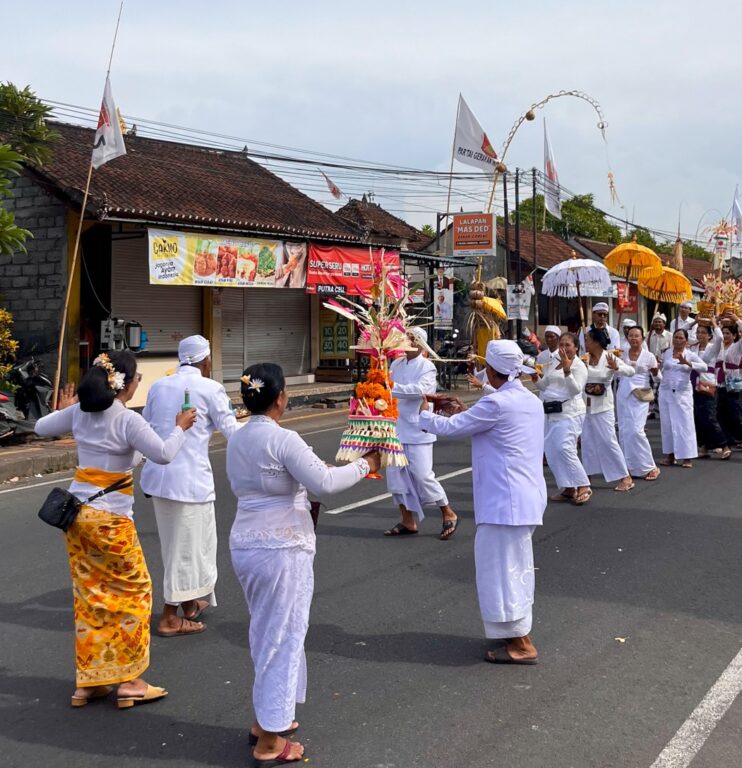
3. Nyepi
The most important, sacred and holy day of the year is Nyepi. It takes place every year on the day after the new moon in March. This Hindu celebration marks a new year according to the Saka calendar. Also, it symbolizes a period of self-reflection for all residents of Bali. It’s known as ‘The Day of Silence’, with activities such as travel, working and using electricity strictly forbidden – it’s even illegal for visitors to leave their hotels!
However, this isn’t just a quiet holiday; spiritual beliefs are at its core. Nyepi celebrated the victory of good over evil in Hindu mythology when gods were defeated by demons who attempted to disrupt religious practices. As part of festivities leading up to the day, ogoh-ogoh statues depicting monsters or deities are made and paraded through village streets before being burned later that evening. In addition, large bonfires are lit across many villages throughout Bali.
4. The Omed-Omedan Festival
The Omed-Omedan Festival is an exciting and unique event annually in Banjar Kaja Sesetan, Denpasar, Bali. Celebrated the day after Nyepi, it is also known as “The Kissing Ritual”, with hundreds of single men and women aged 17-30 years gathering together in a day of celebration of kinship and joy. The men and women separate, and then couples are brought together to embrace, then kiss while onlookers splash water on them, symbolizing purification. The festival brings together locals and tourists in a joyous celebration of life and the cleansing of past negative experiences. With its high energy and contagious vitality, it’s easy to see why the Omed-Omedan Festival is one of Bali’s most popular events.
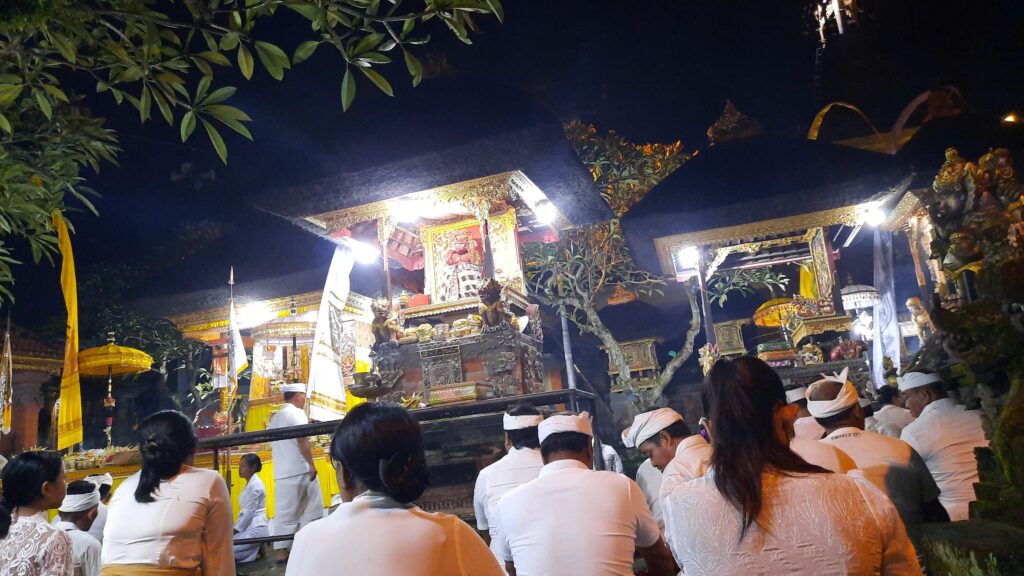
5. Saraswati
The Saraswati celebration is a fascinating celebration in Bali that honours the Hindu goddess of knowledge and learning. During this time, offerings are made at shrines around Bali. People visit temples to pray for success in their studies, business ventures, and other endeavours. Saraswati celebrations are an important part of life in Bali as they promote harmony between man and nature, encourage knowledge sharing, and strengthen community ties through mutual respect, understanding, and appreciation of culture.
6. Tumpek Landep
Tumpek Landep is a celebration in Bali that honours weapons and particularly metals, celebrated every 210 days. Hindus believe that these weapons and utensils possess spiritual powers to protect individuals from harm. Balinese Hindus offer prayers at temples across Bali, using offerings such as flowers, fruit, and incense. People also place traditional Balinese daggers outside their homes to show respect for the deities who safeguard them. Tumpek Landep serves as a reminder of the importance of protecting against enemies while remaining peaceful within one’s home.
On this Tumpek Landep day, Hindus residing across the island are, in particular, respecting the metal spiritual goods, especially Keris, which is believed to possess spiritual power and nowadays serves as one of the tangible cultural heritages.
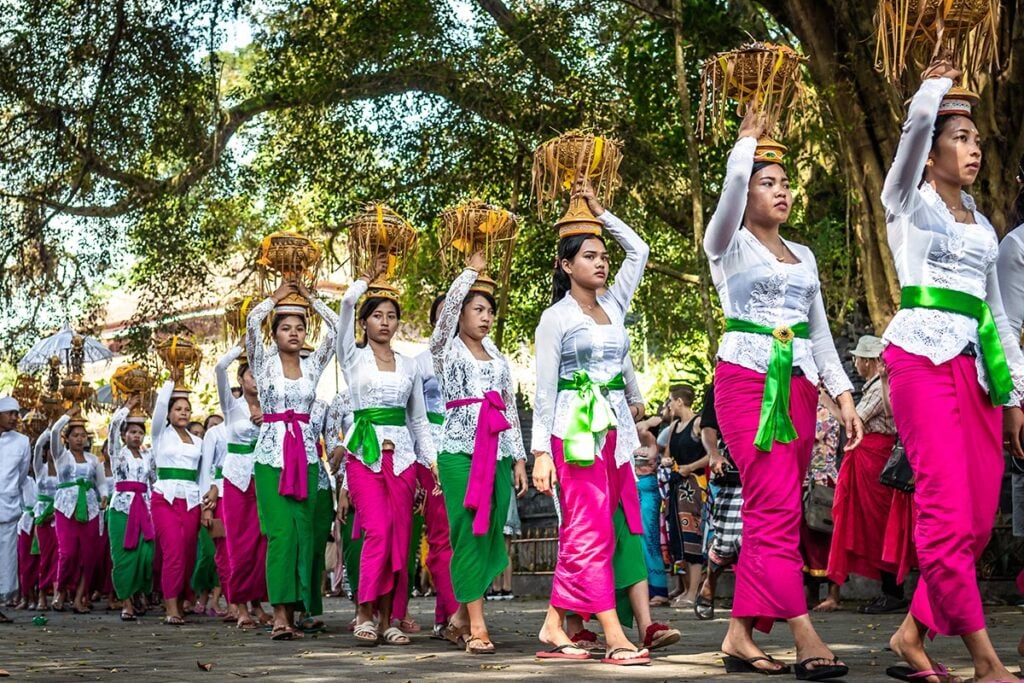
7. Odalan
Odalan is celebrated to mark the anniversary of the consecration of Hindu temples in Bali. Each temple in Bali has its own unique date for the Odalan festival, which is determined by the Balinese calendar. The festival is usually celebrated every 210 days. During the Odalan festival, Balinese Hindus visit their local temples dressed in traditional clothing and bring offerings of food, flowers, and incense to honour the deities. There are also various ceremonies, dances, and rituals performed throughout the festival. The festival is an important time for Balinese Hindus to renew their devotion to their religion and strengthen their sense of community.
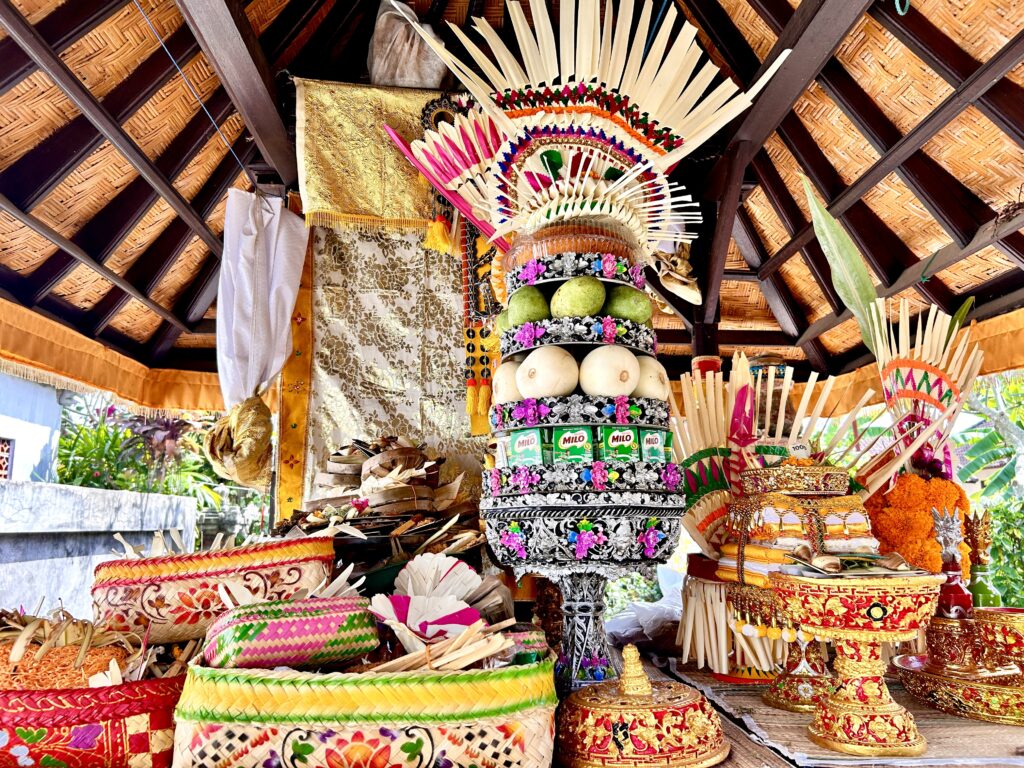
8. The Perang Pandan Festival
The Perang Pandan Festival, also known as Mekare-kare, is a traditional event that takes place in Tenganan Village. It is a ritualistic battle where men from the village fight each other using thorny pandan leaves as weapons. The festival is held annually on the day after the Galungan festival, usually in May or June. It is a unique and colourful event that attracts visitors from all over the world.
During the festival, men from the village engage in a mock battle using pandan leaves, which are woven into strips and tied into a small bundle. The men then attack each other, striking their opponents with the thorny leaves while trying to avoid being hit themselves. The battle continues until one fighter gives up or is declared the winner. The festival is believed to be a way to honour the Hindu god Indra, who is the God of war and rain.
9. Makepung Buffalo Races
Makepung Buffalo Races is a traditional cultural event that takes place in the regency of Jembrana in Bali. It is a unique and exciting race where farmers ride on the back of a pair of water buffalo that are specially trained and decorated for the occasion. The Makepung races are held annually from July to November, usually on weekends. The event attracts large crowds of spectators who come to cheer on their favourite teams and join the festive atmosphere. The races are not only a traditional competition but also a celebration of the farming culture and a way to strengthen the bonds between the farmers.
During the races, farmers race their decorated buffaloes on a track for a distance of approximately 150 to 200 meters. The buffaloes are controlled by the farmers using traditional bamboo sticks, and they can reach speeds of up to 60 km/h. The races are judged based on the speed, style, and decorations of the buffaloes.
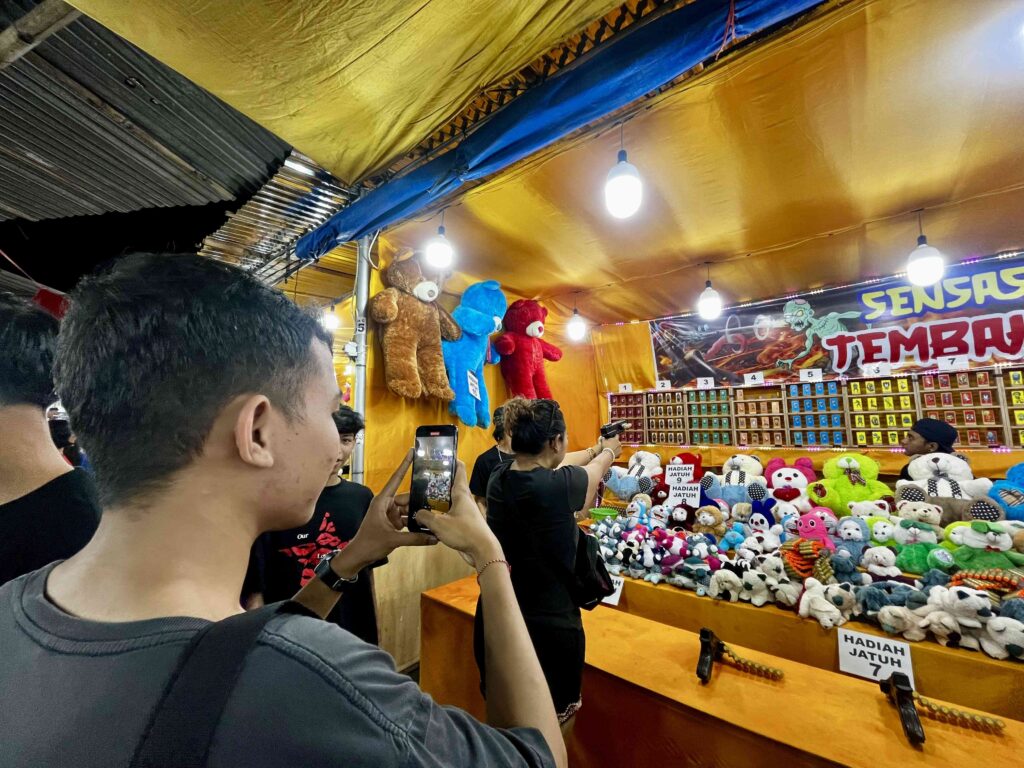
10. The Bali Arts Festival
The Bali Arts Festival is an annual event held in Denpasar’s Art Centre since 1982, showcasing the craftsmanship of artisans from around the island in Balinese art and culture, wood carving, Balinese painting, metalwork, batik weaving, and traditional song and dance performances. Visitors can enjoy local delicacies, interactive activities for children, and cultural exchange among communities from Indonesia and beyond. The festival promotes cross-cultural dialogue, knowledge sharing, literary arts, and love and relationship, making it one of Indonesia’s most prominent events. Whether you are an art lover or looking for fun activities with your loved ones, the Bali Arts Festival is a must-visit event.
11. The Ubud Writers And Readers Festival
The Ubud Writers and Readers Festival is an annual event in Ubud that celebrates literature, art, and ideas from all over the world. Established in 2004, the festival has since grown to become one of the most prestigious literary events in Southeast Asia, attracting a diverse and international audience of writers, readers, and thinkers. The festival features a wide range of events, including panel discussions, book launches, literary workshops, and performances, as well as opportunities for attendees to connect with authors and fellow enthusiasts. Through its emphasis on cultural exchange and dialogue, the Ubud Writers and Readers Festival serves as a vibrant platform for the exchange of ideas and stories, fostering a sense of community among those who share a passion for literature and the arts.
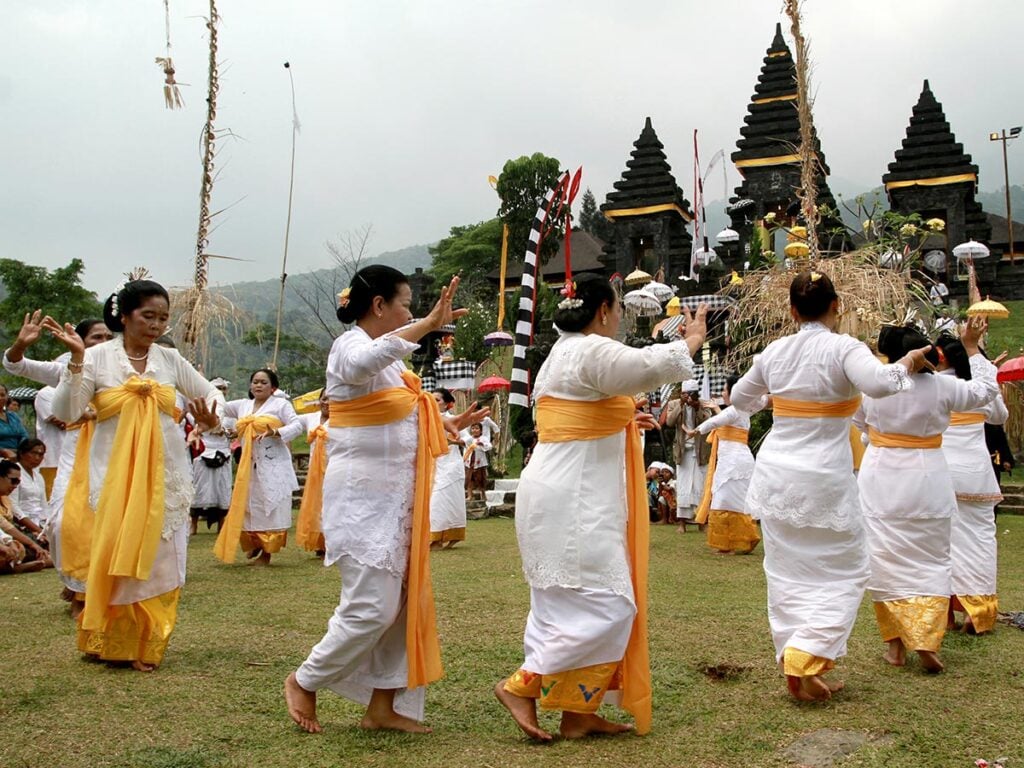
Bali Calendar of Events and Festivals
Since many festivals in Bali follow moon cycles and the traditional Balinese calendar, which is 210 days, the dates change annually. You can look online to find the dates each year.
Bali is a paradise for those exploring its fascinating festivals and celebrations. From the vibrant Galungan and Kuningan to the spiritual Nyepi, there are many opportunities to immerse oneself in this unique culture. Bali’s festivals and celebrations captivate visitors from all corners of the globe. This island continues to amaze and delight tourists, culture seekers, and nature lovers year after year.
Read more:
The Balinese Calendar Systems: There Is More Than One Way To Measure Balinese Life
Public Holidays Bali: All The Holidays In Indonesia You Need To Know

